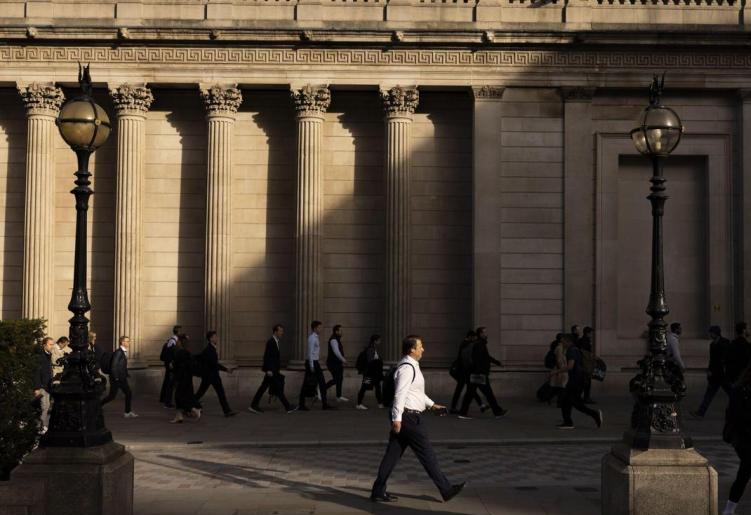
Britain's national debt is now equal to economic output for the first time since the 1960s, according to new economic data. The Labour government has warned that tough fiscal choices will be made in its first budget.
The Office for National Statistics said in a press release Friday that the UK's public sector net debt had reached a preliminary estimate of 100 per cent of gross domestic product (GDP) at the end of August.
Darren Jones, a senior Treasury official, said in a statement that Friday's figures showed borrowing in August was the highest on record since the start of the coronavirus pandemic. "The national debt as a percentage of GDP has reached 100 percent, the highest level since the 1960s. As we inherit a £22bn 'black hole' in the public finances this year, we are taking tough decisions to repair the foundations of the economy."
Britain's debt-to-GDP ratio reached 99.3 percent in July.
The Office for National Statistics said net borrowing reached 13.7 billion pounds in August as spending on public services increased. This week, the government agreed to big pay rises for doctors and train drivers, a trend that is expected to continue.
Looking ahead, the Office for Budget Responsibility, the government watchdog, predicted last week that Britain's national debt could almost triple over the next 50 years, driven by an ageing population and climate change.
Since his election in early July, Starmer has repeatedly warned the public that the government plans to deliver a "painful" budget announcement on October 30, which is expected to include tax increases and spending cuts. The Labour government has been criticised for scrapping winter fuel payments for 10m pensioners, but Mr Starmer defended the move as a "tough choice" it had been forced to make to plug a £22bn hole in the public finances and blamed the Conservative government for the financial predicament.
Adding to the gloom, data released by market researcher GfK showed a marked drop in consumer confidence in the UK, with its index "falling sharply" to minus 20 points in September.
Neil Bellamy, director of consumer insight at GfK, said that while inflation had moderated and the Bank of England was expected to cut interest rates further, this was not good news for the new government. "Strong consumer confidence is a cornerstone of economic growth and a key driver of consumption. With the winter fuel allowance gone and a clear warning of more tough decisions on tax, spending and welfare ahead, consumers are nervously awaiting the Budget."
The Bank of England decided Thursday to keep its key interest rate at 5.0 percent, rather than follow the Federal Reserve in slashing rates. Speaking after a regular meeting, boe Governor Andrew Bailey said the central bank must be "careful not to cut interest rates too quickly or too sharply" as inflation remains above target.
Separately, the Office for National Statistics added Friday that British retail sales rose 1 percent last month, boosted by summer discounting and warm weather, with clothing stores and supermarkets performing strongly. Data this week showed annual inflation was unchanged in August from July at 2.2 percent, above the Bank of England's 2 percent target.
However, further rate cuts could provide a much-needed boost to the UK economy as retail banks typically pass on rate cuts to borrowers, boosting consumer disposable income. Last week, official data showed Britain's economic output stalled in July, putting pressure on a new government that has made economic growth a priority.

The South Korean political arena has once again been embroiled in a public controversy over a judicial investigation that has shaken the entire nation.
The South Korean political arena has once again been embroi…
On the morning of December 29th local time, the precious me…
According to the US media Barchart, recently, the fluctuati…
On December 29th, Mar-a-Lago in Florida, USA, witnessed a h…
SoftBank Group announced on Monday that it has agreed to ac…
Recently, the US State Department issued a visa ban, adding…